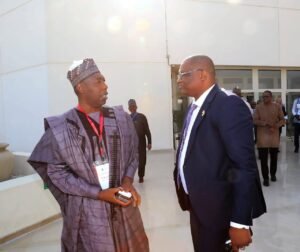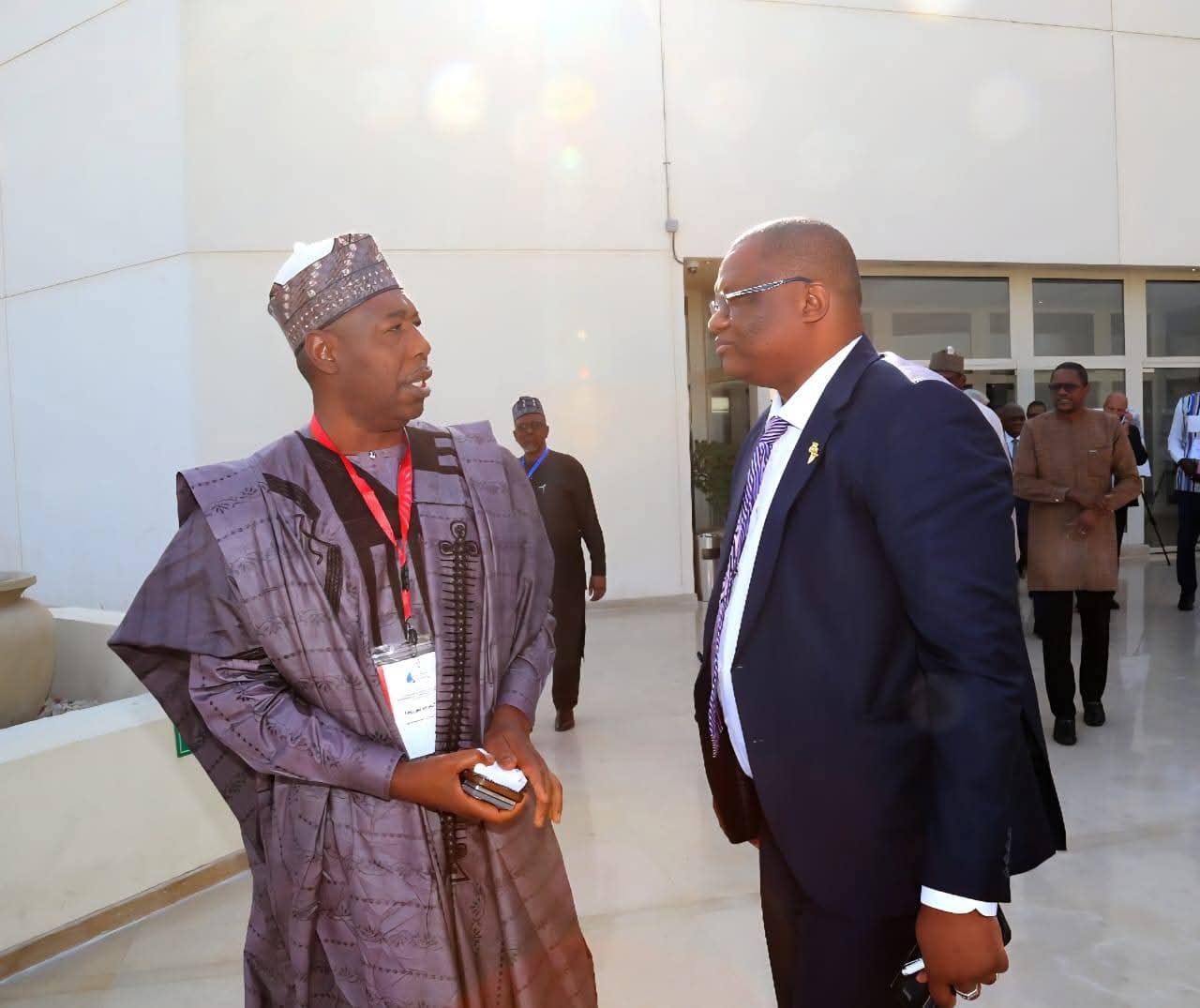Zulum advocates regional collaboration to address insecurity, humanitarian crisis in the Sahel

Borno State Governor, Professor Babagana Umara Zulum, has called for a comprehensive and multifaceted strategy, hinged on broader regional cooperation, to tackle the escalating security and humanitarian crisis in the Sahel region.
Zulum made the appeal while delivering a keynote address at the roundtable of the 5th Aswan Forum for Sustainable Peace and Development in Aswan, Egypt.
The governor whose state has been at the epicentre of Boko Haram insurgency in the Lake Chad Basin, argued that a purely military solution has proven to be insufficient in addressing the challenges.
He emphasised that lasting peace can only be achieved by simultaneously tackling the insurgency and addressing the root causes of the conflict.
“The crises of instability, terrorism and displacement that plague the Sahel cannot be solved by kinetic means alone,” Governor Zulum stated. “We must look beyond the battlefield. There is an urgent need for a multifaceted approach that combines security, development, and humanitarian assistance in a synchronised manner.”
Zulum also called for broader cooperation among countries in the Sahel region to block extremist groups and other criminal networks operating across borders with impunity.
“In the Sahel context, you cannot address the challenges by just looking at two or three countries. You need to look deeper into the political region of the Sahel as defined by the United Nations Strategy, which covers 10 countries, including Mauritania, Gambia and Guinea, among others. Collaboration among the larger Sahel communities is paramount.”
Beyond security collaboration, the governor called for improved development in the Sahel countries, saying poverty, poor access to education, and climate change-induced scarcity are key drivers of recruitment for armed groups in the region.
“For the last 15 years, we have had many interventions in Borno State, but humanitarian support is not a sustainable solution. There is a need for longer-term sustainable solutions. We received many donors, partners, and non-governmental organisations, but most of them engaged in short-term humanitarian solutions.”
“There is a need for sustainable solutions, including development. The nexus between peace, development and security need not be overemphasised. If there is no development, there cannot be peace or security.”
The roundtable featured leaders representing various countries, including Dr. Badr Abdelatty, Egypt’s Minister of Foreign Affairs, Emigration, and Expatriates; Abdoulaye Diop, Mali’s Minister of Foreign Affairs, International Cooperation, and African Integration, Republic of Mali; and H.E. Karamoko Jean-Marie Traoré, Minister of Foreign Affairs, Regional Cooperation and Burkinabes Abroad of Burkina Faso.





